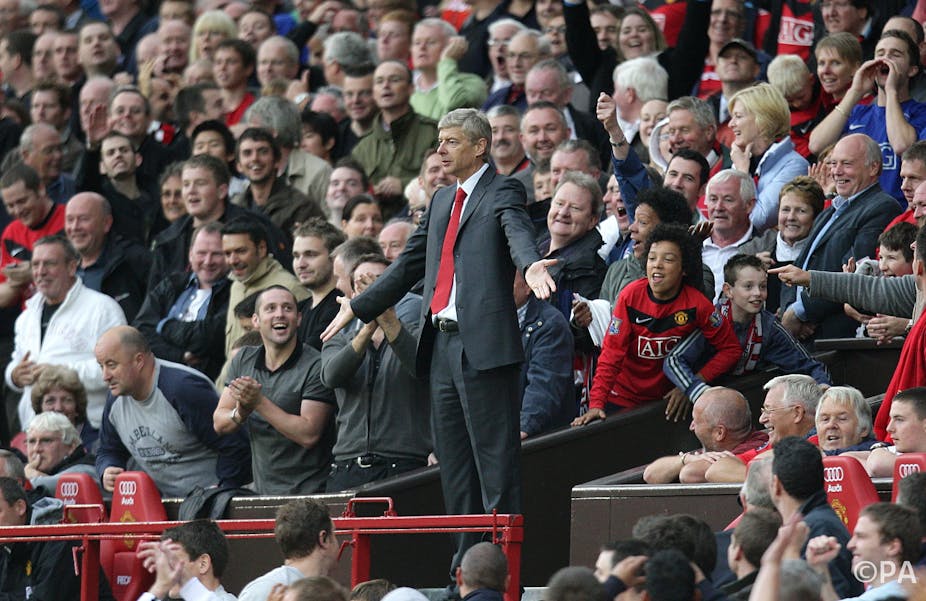Ever thought about how it felt to read about “your” performance in the papers? For high-level leaders such as football managers, but increasingly also CEOs of high-profile businesses this is part of their experience. In the last week alone the bosses of Npower, Barclays, RyanAir, and the former chief of BlackBerry have all seen their personal performance picked over in the national media.
While they’re getting stick for how they do their job, these leaders might do well to wonder whether these outcomes – banking profits, airline customer service, tech developments in mobile phones – are things they can really influence, and if so, how big that influence really is.
Those of us who look at the social and psychological aspects of leadership often talk about the “Romance of Leadership”. Management Professor James Meindl introduced this term in the 1980s to describe how we have a tendency to over-attribute responsibility for team, organisation or even national performance to a leader.
This is not to say that leaders do not have an influence on how thing go, but as “spectators” we often underestimate the effect of other factors, such as the environment, the market situation or the effect of followers. Most team sports are good examples here: yes, football managers select the team, partly coach the players, spot new talent and so on, but once the team is on the pitch, they have little influence over what is happening next.
High-profile leaders face an interesting challenge. Because outsiders have only a rough idea what happens in any organisation, they find it easier to blame the leader failure or hail them for their successes even if their performance is just one part of the actual reasons for failure or success. Leaders are also responsible to many different stakeholders – and the public is often one of them. That means that they have to square company interests with public opinion and at the same time be careful not to be held responsible for everything.
Again football managers are a good example: in their quest to retain their jobs, they often try to manage “too much”. They take on responsibilities that they should delegate as they think they might be blamed for them later on. This can lead to high levels of stress on an individual level but also to potentially ineffective practices at an organisational level.
At the same time, some leaders are quite good at catching the limelight when things go right and maybe realise too late that this also means that they will be blamed when things go wrong. Some say this is the reason why high-level leaders are paid so much. They are paid not only to lead and manage but also to take the blame when things go wrong.
But then again, research has shown that frequent manager changes are not good for performance in the long run Sir Alex Ferguson and Jack Welch, managers of Manchester United and General Electric respectively for more than two decades, are excellent examples of the merits of sticking with one boss. When assessing a failing organisation, it is always easy to blame one person, get rid of that person, but then to forget the complex reasons behind failure and not analyse or address those other reasons.
We all have an idea what high-level leaders are like and should be like. And we apply this idea to them. So, on the one hand, we might see traits and behaviours in a particular leader that are not really there, simply because we do not have enough knowledge about the person and thus we “fill in” the gap from our preconceived ideas.
On the other hand, if someone does not match what we think these types of leaders should be like, they might have a hard time convincing us that they are really leaders at all. This is particularly challenging for high-profile leaders because everyone has an idea what they are like and what they should be like.
The former is often less positive than the latter. And since high-profile leaders can never interact with everybody who has an opinion about them, they might have little room to convey what they are really like and why they are good leaders.
Leadership is more complex than most realise. It involves not only what leaders do but also what their followers do and the context in which leaders operate. And, I would like to add, how they are perceived by the wider public. This makes the life of high-profile leaders just that bit more complex.

